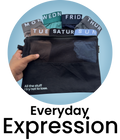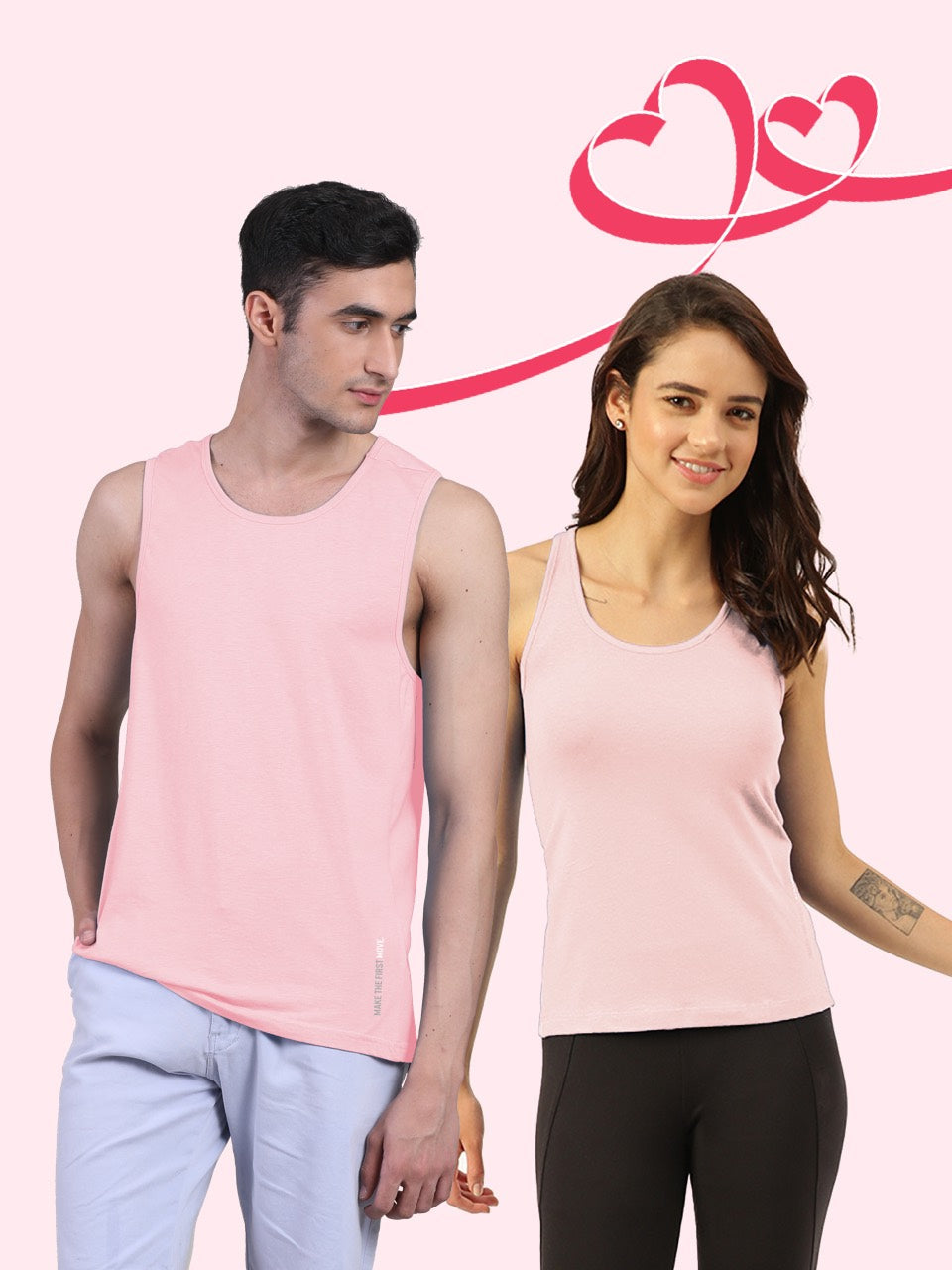As consumer demand for eco-conscious apparel intensifies, the bamboo tshirt emerges as a frontrunner, redefining sustainable comfort. Unlike conventional cotton, bamboo's rapid growth cycle requires minimal water and zero pesticides, significantly reducing its environmental footprint. Its unique cellulosic structure, often processed into bamboo viscose or lyocell, naturally confers exceptional thermoregulatory and moisture-wicking properties, keeping wearers cool in heat and warm in cold. This inherent breathability, coupled with its remarkable softness, positions the bamboo tshirt beyond mere athleisure, offering a luxurious yet practical alternative. Recent innovations in closed-loop lyocell production further enhance its eco-credentials, solidifying its place as a cornerstone in the future of responsible fashion.

What's the Hype About Bamboo Fabric?
Hey there, ever wondered what makes a bamboo tshirt so special? It's not just a trend; it's a fantastic leap towards more sustainable and incredibly comfortable clothing. Let's dive into what bamboo fabric actually is and why it's gaining so much traction.
At its core, bamboo fabric is made from bamboo pulp. You might be thinking, "How does a stiff plant become a soft shirt?" Well, it's quite a process! There are a couple of main ways to transform bamboo into textile fibers:
- Bamboo Viscose (or Rayon) This is the most common method. The bamboo plant is crushed. then cellulose is extracted from the bamboo culms. This cellulose is then dissolved in a chemical solution (typically sodium hydroxide and carbon disulfide) to create a viscous liquid. This liquid is then extruded through tiny holes (spinnerets) into another chemical bath, which solidifies the fibers. These fibers are then spun into yarn. While this process uses chemicals, many manufacturers are moving towards closed-loop systems to minimize environmental impact.
- Bamboo Lyocell This is a more eco-friendly, albeit less common, method. Similar to Tencel (which is often made from eucalyptus), the bamboo pulp is dissolved using a non-toxic solvent (amine oxide). This solvent is then recovered and reused in a closed-loop system, meaning almost no waste products are released into the environment. This results in a very pure and sustainable fiber.
So, why is bamboo considered so sustainable? It's pretty amazing how quickly bamboo grows – some species can grow up to three feet in a single day! This makes it an incredibly renewable resource. Plus:
- It requires very little water to grow, far less than cotton.
- It doesn't need pesticides or fertilizers, as it's naturally pest-resistant.
- Bamboo forests are excellent at absorbing carbon dioxide and releasing oxygen, contributing positively to air quality.
When you hear people raving about their bamboo tshirt, it's often because of these impressive origins and the comfort they deliver.
The Unbeatable Comfort of a Bamboo T-shirt
Okay, so we know bamboo is great for the planet. what about for you? This is where the bamboo fabric really shines. Wearing a bamboo tshirt feels like a dream. it's all thanks to its unique fiber structure.
Imagine slipping into a cloud – that's pretty close to the feeling of a bamboo shirt. Here’s why it’s so comfortable:
- Incredible Softness Bamboo fibers are naturally smooth and round, without sharp spurs to irritate the skin. This translates to a fabric that is incredibly soft, often compared to silk or cashmere. It's gentle against even the most sensitive skin.
- Breathability & Moisture-Wicking Bamboo fabric is riddled with micro-gaps and tiny holes, which give it superior ventilation properties. This means air can circulate freely, helping to keep you cool. But it's not just about airflow; these micro-gaps also allow the fabric to absorb and evaporate moisture (like sweat!) incredibly quickly, wicking it away from your skin. This keeps you feeling dry and fresh, even on hot days or during light activity. I remember wearing a bamboo tshirt during a summer hike. I was genuinely surprised by how much cooler and drier I felt compared to my usual cotton tee.
- Thermoregulation This is a fancy word for the fabric's ability to keep you comfortable in different temperatures. Because of its breathability and moisture-wicking properties, a bamboo shirt can help regulate your body temperature. It keeps you cooler in the summer by drawing heat away from your body. surprisingly, it can also provide a layer of warmth in cooler conditions by trapping air within its fibers. It's like a natural personal climate control system!
- Hypoallergenic and Anti-Bacterial Bamboo contains a natural bio-agent called "bamboo kun," which gives it inherent anti-bacterial and anti-fungal properties. This means your bamboo tshirt can resist odor-causing bacteria, keeping you smelling fresher for longer. Plus, its smooth fibers are less likely to cause allergic reactions, making it an excellent choice for people with sensitive skin or allergies.
Style That's Good for the Planet: Sustainable Aspects
Choosing a bamboo tshirt isn't just about feeling good; it's about doing good for the planet too. Sustainability is a huge buzzword these days. for good reason. When we talk about bamboo, we're looking at a truly remarkable resource.
Let's break down why bamboo is a sustainability superstar:
- Rapid Renewable Resource As mentioned, bamboo is the fastest-growing plant on Earth. It can regenerate quickly after harvesting without the need for replanting. This rapid growth means it can be harvested frequently without depleting natural resources. Imagine a crop that grows back almost as soon as you cut it – that's bamboo!
- Minimal Resource Input Unlike many traditional crops, bamboo doesn't require irrigation, meaning it thrives on natural rainfall. It also doesn't need pesticides or herbicides because it has natural pest resistance. This drastically reduces its environmental footprint compared to, say, conventional cotton, which is notoriously water and pesticide-intensive.
- Soil Health and Carbon Sequestration Bamboo plants have extensive root systems that help prevent soil erosion. They also absorb significant amounts of carbon dioxide from the atmosphere and produce more oxygen than an equivalent stand of trees. This makes them powerful allies in combating climate change.
- Biodegradability At the end of its long life (because a good bamboo tshirt can last!) , bamboo fabric is biodegradable. This means it can naturally decompose and return to the earth, leaving little to no lasting environmental impact, unlike synthetic fabrics that can persist in landfills for hundreds of years.
- Certifications to Look For When purchasing bamboo clothing, you might encounter certifications like Oeko-Tex Standard 100. This certification ensures that the finished product is free from harmful substances, which is great for both you and the environment. Some brands also prioritize closed-loop production processes for their bamboo viscose or use bamboo lyocell, which are even more environmentally friendly.
By choosing a bamboo tshirt, you're making a conscious decision to support a more eco-friendly textile industry. It's a small step that, when multiplied by many, can make a significant difference.
Bamboo T-shirt vs. The Usual Suspects: Cotton & Polyester
So, how does a bamboo tshirt stack up against the fabrics we've grown up with? Let's put bamboo head-to-head with cotton and polyester, the two giants of the apparel world, to see where it truly shines.
Here’s a quick comparison:
| Feature | Bamboo Fabric | Cotton Fabric | Polyester Fabric |
|---|---|---|---|
| Softness | Exceptional, often compared to silk or cashmere. Smooth, non-irritating. | Soft. can feel rougher after washes. Organic cotton is softer. | Can feel synthetic or plastic-like; some blends are softer. |
| Breathability | Highly breathable due to micro-gaps; excellent airflow. | Breathable. can trap moisture when saturated. | Less breathable; can feel clammy in warm weather. |
| Moisture-Wicking | Excellent; quickly wicks moisture away from skin, keeping you dry. | Absorbent. slow to dry; can feel heavy when wet. | Good wicking for activewear. doesn't absorb sweat; can feel sticky. |
| Thermoregulation | Naturally adjusts to body temperature, cool in summer, warm in winter. | Keeps you warm when dry. can make you cold when wet. | Can feel hot and clammy in warm conditions. |
| Sustainability | Highly renewable, low water/pesticide use, carbon sequestration, biodegradable. Depends on processing. | Water-intensive, often uses pesticides (conventional cotton). Organic cotton is better. | Petroleum-based, non-renewable, non-biodegradable, microplastic shedding. |
| Odor Resistance | Natural anti-bacterial properties keep odors at bay. | Prone to holding odors over time. | Can develop persistent odors, especially after heavy sweating. |
| Durability | Durable with proper care; resists pilling. | Generally durable. can shrink and wrinkle easily. | Very durable, resistant to shrinking and stretching. |
| Cost | Typically higher than basic cotton or polyester due to specialized processing. | Generally affordable. | Very affordable. |
As you can see, while cotton and polyester have their merits (especially in terms of cost and widespread availability), the bamboo tshirt truly stands out when it comes to comfort, performance. environmental responsibility. It’s a fantastic choice if you’re looking to upgrade your wardrobe with something that feels amazing and aligns with your values.
Real-World Wonder: Where Your Bamboo T-shirt Shines
Okay, so we've talked about the science and the comparisons. where does a bamboo tshirt really make a difference in your everyday life? The beauty of bamboo fabric is its versatility. It's not just for specific situations; it's genuinely an upgrade for almost any occasion.
Here are some real-world applications where your bamboo tshirt will be your new best friend:
- Everyday Comfort This is probably the most common use. For lounging around the house, running errands, or casual meetups with friends, a bamboo tee is simply more comfortable than most alternatives. The softness is addictive. you'll find yourself reaching for it again and again. It feels luxurious without being high-maintenance.
- Activewear & Gym Sessions Forget heavy, sweat-soaked cotton. For light workouts, yoga, or even a brisk walk, a bamboo tshirt is fantastic. Its moisture-wicking properties keep you dry. its breathability prevents that clammy feeling. While it might not be engineered for extreme athletic performance like some synthetics, for everyday fitness, it’s a natural winner. I personally switched to bamboo tees for my morning runs. the difference in how fresh I feel afterwards is remarkable.
- Travel Essential If you're packing light, a bamboo shirt is a must-have. Its odor-resistant properties mean you can wear it multiple times between washes, which is a lifesaver on longer trips. Plus, it's lightweight, folds compactly. dries relatively quickly if you do need to hand wash it on the go.
- For Sensitive Skin If you suffer from eczema, psoriasis, or just generally have easily irritated skin, the smooth, hypoallergenic fibers of bamboo are a game-changer. There's no harshness, no scratchiness – just pure, gentle comfort. Many people report significant relief from skin irritation when they switch to bamboo clothing.
- Layering Piece Because of its thermoregulating properties, a bamboo tshirt makes an excellent base layer. It helps manage your body temperature whether you're adding a sweater for warmth or wearing it under a light jacket on a breezy day.
From a busy day of errands to a relaxing evening at home, a bamboo tshirt offers a blend of performance, comfort. ethical choice that's hard to beat. It truly elevates your wardrobe.
Caring for Your Bamboo T-shirt: Simple Steps for Lasting Comfort
You've invested in a fantastic bamboo tshirt that offers amazing comfort and sustainability benefits. Now, how do you make sure it stays soft, vibrant. durable for years to come? The good news is, caring for bamboo fabric isn't complicated at all!
Here are some simple, actionable tips to keep your bamboo tees in tip-top shape:
- Gentle Wash is Key
- Machine Wash Cold Always opt for a cold water wash cycle. Hot water can cause bamboo fibers to shrink or damage them over time, leading to pilling or a rougher texture.
- Use a Gentle Cycle Choose your machine's "delicate" or "gentle" cycle. This minimizes agitation, protecting the fabric's integrity.
- Mild Detergent Use a mild, eco-friendly detergent. Harsh chemicals or bleach can weaken the fibers and strip away their natural properties. Avoid fabric softeners too; bamboo is naturally soft. softeners can leave a residue that clogs the fibers and reduces their breathability.
- Wash with Similar Colors Just like any other garment, wash your bamboo tshirt with similar colors to prevent dye transfer.
- Drying Your Bamboo Tee
- Air Dry is Best The absolute best way to dry your bamboo clothing is by air drying it. Lay it flat on a clean surface or hang it on a clothesline or drying rack. This preserves the fabric's softness and shape. it's also the most energy-efficient option.
- Low Heat Tumble Dry (If Necessary) If you must use a dryer, select the lowest heat setting possible or even an "air fluff" setting. High heat is the enemy of bamboo fabric and can lead to shrinking, pilling. damage. Remove the shirt as soon as it's dry to prevent over-drying.
- Ironing (If You Must)
- Bamboo fabric is naturally resistant to wrinkles, so you might not even need to iron your bamboo tshirt. If you do, use a low-heat setting and iron on the reverse side of the garment. A steamer works wonderfully too!
- Storage
- Store your bamboo tees just as you would your other quality garments. Ensure they are completely dry before folding and putting them away to prevent mildew.
By following these simple guidelines, your bamboo tshirt will continue to provide you with sustainable comfort and breathable style for many seasons to come. It's a small effort for a long-lasting, wonderful garment!
Conclusion
Embracing a bamboo T-shirt truly redefines comfort, proving that style doesn't have to compromise sustainability. Having personally experienced the remarkable difference, I can attest to its unparalleled breathability, which is a godsend during humid summer days or intense workouts, unlike traditional cotton that often feels heavy. This isn't just about softness; it's about making a conscious choice in a world increasingly aware of its environmental footprint, aligning perfectly with the growing slow fashion movement. My personal tip? Start by replacing one of your most frequently worn tees with a bamboo alternative; you'll immediately notice the superior drape and how it maintains its shape wash after wash, a significant recent development in eco-textiles. This small, actionable step not only elevates your everyday comfort but also contributes to a larger shift towards responsible consumption. So, choose comfort that cares. feel good, knowing your wardrobe choices are making a positive impact.More Articles
Men's T-Shirt – Classic Style & Ultimate SoftnessTees – Casual Style & All-Day Wearability
Men's Tank Top – Athletic Freedom & Cool Comfort
Women's Tank Top – Stylish Layering & Breathable Comfort
Women's Inner Wear – Smooth Silhouette & Everyday Confidence
FAQs
What makes a bamboo T-shirt so great?
Bamboo fabric is incredibly soft, breathable. naturally moisture-wicking, keeping you cool and comfortable all day. Plus, it's a sustainable choice for your wardrobe.
Is it really as soft as people say?
Absolutely! Bamboo rayon is known for its luxurious, silky-smooth feel against the skin. It's often compared to cashmere or silk. without the high maintenance.
How does it feel to wear one, especially in warm weather?
Bamboo T-shirts are highly breathable and naturally thermoregulating. This means they help keep you cooler in summer by wicking away sweat and warmer in winter by trapping a layer of air, making them great for year-round comfort.
I keep hearing about bamboo being sustainable. Why is that?
Bamboo is a super-fast growing plant that requires very little water and no pesticides to thrive. It also regenerates quickly after harvesting, making it a highly renewable resource compared to conventional cotton or synthetics.
How do I take care of my bamboo T-shirt? Will it shrink?
It's best to wash them in cold water on a gentle cycle and hang dry or tumble dry on low. While bamboo fabric is generally durable, high heat can cause some shrinkage, so avoiding hot water and high dryer settings is key to keeping it looking great.
Does bamboo fabric help with body odor?
Yes, it does! Bamboo naturally has anti-bacterial properties, which helps resist odor-causing bacteria. This means your T-shirt stays fresher for longer, even after an active day.
Is this T-shirt good for people with sensitive skin or allergies?
Definitely! Bamboo fabric is naturally hypoallergenic and incredibly gentle, making it an excellent choice for those with sensitive skin, eczema, or allergies. Its smooth fibers are less likely to irritate compared to rougher fabrics.





